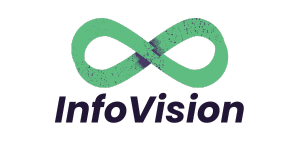Financial education plays a crucial role in shaping the lives of adults by providing them with the knowledge and skills required to make informed decisions about their finances. With a strong foundation in financial literacy, individuals can manage their money effectively, plan for the future, and achieve their financial goals. Understanding the importance of such education is essential for anyone looking to improve their financial wellbeing and lead a more secure life.
In today’s fast-paced world, the need for a solid grasp of money management is more critical than ever. From budgeting and saving to investing and retirement planning, being financially literate empowers adults to navigate the complexities of personal finance with confidence. This article will explore the significance of financial education in adulthood, emphasizing how it can enhance one’s financial stability and overall quality of life.
The importance of financial literacy for adults

Financial literacy is the ability to understand and effectively use various financial skills, including personal financial management, budgeting, and investing. For adults, possessing these skills is vital for maintaining a healthy financial life. Without a proper understanding of finances, individuals may struggle with debt, insufficient savings, and inadequate preparation for retirement.
By gaining financial literacy, adults can avoid common pitfalls such as overspending and accumulating high-interest debt. It equips them to make educated choices regarding loans, credit cards, and other financial products. Moreover, a strong grasp of financial concepts can lead to better investment decisions, ensuring long-term financial growth and security.
Understanding the financial landscape
Becoming financially literate involves familiarizing oneself with the ever-evolving financial landscape. This includes understanding different investment options, interest rates, tax implications, and the impact of economic factors on personal finances. Being informed about these elements helps individuals make savvy decisions that align with their financial objectives.
Staying updated on financial trends and changes in the market is crucial for those looking to maximize their wealth. Whether it’s grasping the nuances of stock market investments or understanding the benefits of diversified portfolios, financial literacy empowers individuals to strategically grow their wealth and mitigate potential risks.
Building a financial foundation for the future
Securing one’s financial future entails not only understanding the basics but also implementing sound strategies that lead to long-term benefits. This foundation is built through practical steps informed by comprehensive financial literacy. It includes establishing an emergency fund, planning for major life events, and creating a sustainable retirement plan.
Financial education enables adults to prepare for unforeseen circumstances, ensuring they have a safety net to fall back on during tough times. By prioritizing future planning and savings, individuals can achieve financial independence and enjoy a more comfortable life post-retirement.
Practical steps for enhancing financial skills
To improve financial acumen, individuals can take several practical steps. Enrolling in workshops, attending seminars, or using online resources dedicated to finance can broaden one’s understanding of personal economic management. Additionally, consulting with financial advisors can provide tailored advice for specific goals and challenges.
Regularly reviewing and adjusting financial plans is also important to accommodate life changes and new financial goals. By setting realistic objectives and tracking progress, adults can maintain control over their finances and ensure that their strategies remain effective and relevant over time.
Empowering adults through financial education
Financial education is an indispensable tool for adults seeking to improve their monetary well-being. By equipping individuals with the knowledge to make informed decisions, it offers the opportunity for greater financial security and independence. As adults become more financially literate, they can take proactive steps towards achieving their lifelong aspirations.
Ultimately, embracing financial literacy as a lifelong learning journey enables adults to adapt to changes and overcome obstacles. This not only enhances personal financial stability but also contributes positively to the community and economy at large. Investing in financial education is, therefore, a crucial step towards a more prosperous and fulfilling life.



